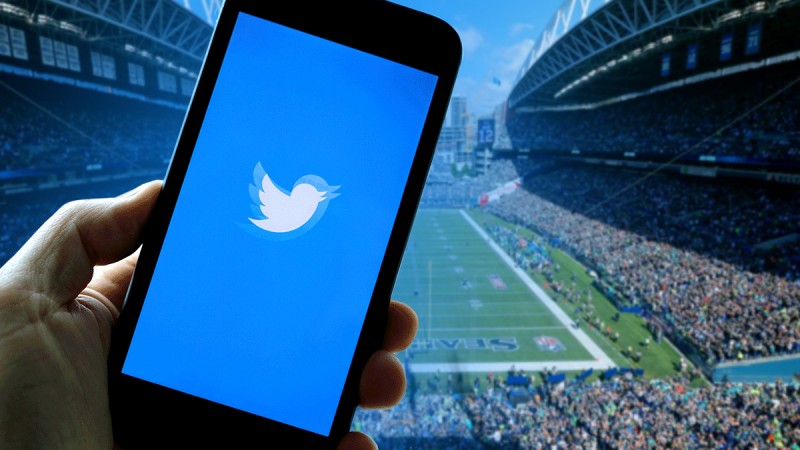The dangers of sports gambling
June 7, 2023
It is hard to watch television nowadays without seeing constant ads for sports gambling. Companies like FanDuel and DraftKings swarm commercials with their gamblings ads telling customers to sign up to get their first bets risk-free. With online gambling becoming legal in many states in recent years, the popularity of betting on sports has skyrocketed. But do people understand the dangers of sports gambling? This package will explore the risks and dangers of sports gambling along with its newfound presence in our society.
Intro to sports gambling
The dangers of sports gambling for teens in New Jersey are particularly concerning due to their vulnerability and lack of maturity. There are many specific dangers associated with gambling, especially in teens: This consists of addiction, financial risks, academic disturbance, and the exposure to illegal activities. Addiction and impulsive behavior is a huge risk in general to teenagers because they are still in development stages. Teenagers are more susceptible to developing addictive behaviors, including gambling addiction. The thrill and excitement of sports gambling can be particularly appealing to young individuals, and they may be more prone to impulsive decision-making without fully considering the consequences.
Teens are at high risk of losing a lot of money. They generally have limited financial resources, making them more vulnerable to significant financial losses. Inexperienced gamblers are more likely to make poor betting decisions, leading to the depletion of their funds. The financial repercussions can be severe and impact their immediate well-being as well as their long-term financial stability.
Not only are there physical consequences like money loss, but there are also academic and personal disturbances: Excessive sports gambling can distract teenagers from their academic responsibilities and personal development. Preoccupation with gambling and chasing losses can lead to neglecting schoolwork, extracurricular activities, and social relationships, potentially resulting in declining academic performance and strained relationships with family and friends.
Although gambling addictions are not life threatening or as some might say that there are worse things to be addicted to, sports gambling exposes teens to illegal activities. In some cases, teenagers may be lured into engaging in illegal sports gambling activities. This can involve unregulated or illicit platforms, which may expose them to fraud, scams, or involvement with criminal elements. Engaging in illegal gambling can have serious legal repercussions and negatively impact their future prospects.
It is very important that gambling behavior of any kind is not normalized. Introducing teenagers to sports gambling at an early age can normalize the behavior and potentially increase the risk of developing lifelong gambling problems. It can create an unhealthy perception that gambling is a normal and acceptable way to spend time and money, which can lead to ongoing issues with gambling addiction in adulthood. It’s important for parents, educators, and society as a whole to educate teenagers about the potential dangers of sports gambling and promote responsible attitudes towards gambling. Establishing open lines of communication, setting clear boundaries, and encouraging alternative recreational activities can help protect teenagers from the risks associated with sports gambling. Additionally, New Jersey provides resources for gambling addiction treatment, and seeking help from professionals specialized in youth gambling issues is crucial if a teenager shows signs of a gambling problem.
Sports gambling 101
For Better or for Worse: how social media propels sports gambling
A search of social media makes for quick results: “First prop to add today…” “Subscribe for more bets like this one…” “Let’s have a day!”
These are the ideas that dominate the world of sports gambling Twitter. It’s always a race to find the next big bet, to get in on the group that will win and, ultimately, to have a profitable day of betting. Social media has become a home for nonstop discourse about gambling on sporting events. It has built communities of bettors, for better or for worse. And it is fueling a digital revolution in a space that has existed long before the internet.
Decades ago, sports betting was certainly alive and well, but it looked very different than it does today. Illicit gamblers had to find and work with a bookie, an illegal betting facilitator, without being found out by authorities. Betting was closely associated with organized crime in the era of prohibition and gained a poor reputation. Overall, it was not something gamblers could do out in public, like they might play the lottery or take a trip to Las Vegas.
So, the internet’s influence combined with legal actions that decriminalized sports betting have radically changed the landscape of this industry. Online betting opportunities would be bad enough for opponents of gambling to grapple with.
But now enter social media: along with the quick and easy betting opportunities provided by digital sportsbooks, communities for discussion and collaboration can now exist on the sports betting sections of Twitter and other social media platforms. Content creators have emerged like they would for any other popular hobby, while groups and followings have coalesced around certain spaces in the digital world.
For some, this form of community can be beneficial: it provides for fun discussion opportunities and potentially profitable collaboration. It’s entertainment, social interaction and financial advancement all in one place.
However, a closer look reveals some concerning tendencies in how social media is influencing those who are interested in sports betting. For example, one popular concept on Twitter is that of the so-called “bankroll builder.” This tool, promoted by many content creators, is one meant to build up the “bankroll,” or funds available for betting, of gamblers. Ostensibly, bankroll builders are supposed to be low-risk bets that are likely to easily add some cash to bettors accounts, allowing them to later use those funds for bigger bets. However, clear problems exist with the very basis of this idea: all bets have risk, and none are so likely to “hit” that they can be counted on for added funding. In fact, if these bets truly worked so reliably to add cash to gamblers’ accounts, they would simply become the main bets people made and bankrupt the industry.
In this concept and others, deceptive marketing and questionable offers of opportunity can be observed. Those who promote these ideas will often additionally promote their own subscription options, through which followers can make monthly payments in exchange for the tips and advice of the content creator they follow. Again, this is a proposition that is unlikely to produce its supposed value. Such subscriptions are only worthwhile if people make more of a profit than they pay in subscription fees. Doing so consistently appears to be difficult.
Hundreds of millions of dollars have been lost in even single states since sports betting was legalized in recent years. In Illinois, for example, bettors lost over $812,000,000 from March 2020 to May 2022, according to the state’s Center for Tax and Budget Accountability. Such losses pain individuals and profit major sportsbook companies. And the internet and social media are only working to fuel them.
Overall, the promotional nature and questionable offerings of social media spaces in regards to sports betting are quite concerning. Time will tell whether further regulations may be needed to rein in these concerns.
Convenience of sports gambling
Sports gambling has become more convenient and accessible as a result of technological developments and regulatory adjustments. It is now simpler than ever for people to participate in sports betting thanks to the growth of online platforms and smartphone applications. Sports betting being easily accessible has many advantages but also many drawbacks.
The growth of internet platforms is one of the main factors contributing to the rise in sports betting. In the past, people had to go to actual bookmakers or casinos to put their bets on sporting events. In a matter of seconds people are now able to access a variety of online bookmakers and betting exchanges. Utilizing technology improvements, online sports betting offers real-time betting options and live streaming of sporting events.Regardless of one’s location, online platforms are accessible around-the-clock, allowing people to place bets whenever it is convenient. From mainstream sports like football, basketball, and tennis to niche sports and even eSports, online platforms provide a wide selection of games and events to place bets on. Additionally, people have several betting options to pick from, including straight bets, parlays, over/under, and live in-play betting.
People who are underage can easily access betting because opening an account is so simple. No matter if the app or website requires age verification, kids or teens simply use their parent’s or friends email address to gain this online privilege. This accessibility has made gambling more widespread and tempting than ever. Websites such as FanDuel, BetMGM,WynnBet, DraftKings and PointsBet are some examples of online sports gambling that has thousands of users each day. Thankfully, these mobile websites have created a lot of opportunities for many individuals, but is the convenience really worth letting minors take unnecessary risks?
Revenue gained by top companies in 2022
Gambling at East
“The last leg of my parlay didn’t hit last night, I could have won $100.”
“I am slamming Eagles moneyline on Sunday.”
“Heat -4.5 is a lock tonight.”
These are some of the lines that you might hear when you walk around the halls of Cherry Hill East. Over the past couple years, sports gambling has plagued many students at East and has become a daily part of their lives. WIth the gambling age being 21 in New Jersey, students are using their parents’ accounts to bet on top apps like FanDuel or DraftKings or are using illegal gambling sites that don’t ask you for your age.
One anonymous East senior said that he bets daily and even sometimes while sitting in class. He typically will bet only around $10 a day but at times he has bet up to $150-$200 in a single day. This student said that he has a system that he uses to manage his betting to avoid developing an unhealthy addiction.
“Gambling has had a mixed impact on me,” the student said. “While providing me with good entertainment and fun, occasionally I can get carried away. I have a set system where I take a break when I am getting carried away.”
Another anonymous east senior says he makes 2-3 bets per day but never during school so he can focus on his school work. For this student, addiction has been a problem. One day, he lost $700 because he kept losing his bets and kept placing more to try to make up for them. He says that it can be difficult to control his gambling because of the desire to win that large bet.
“When I’m up a lot of money, I can’t control myself,” this student said. “I feel like I keep having to bet more to continue on the hot streak. When I bet in small amounts, it’s easier to control myself because the loss is not as significant.
For these two students and many others, the decision to go into gambling has been a dangerous one that can lead to an unhealthy addiction. People interested in betting should set limits on how often they bet and how much money they are betting a day. This will allow everyone to enjoy the entertainment of sports betting without developing an addiction that can lead someone down a dark path.






